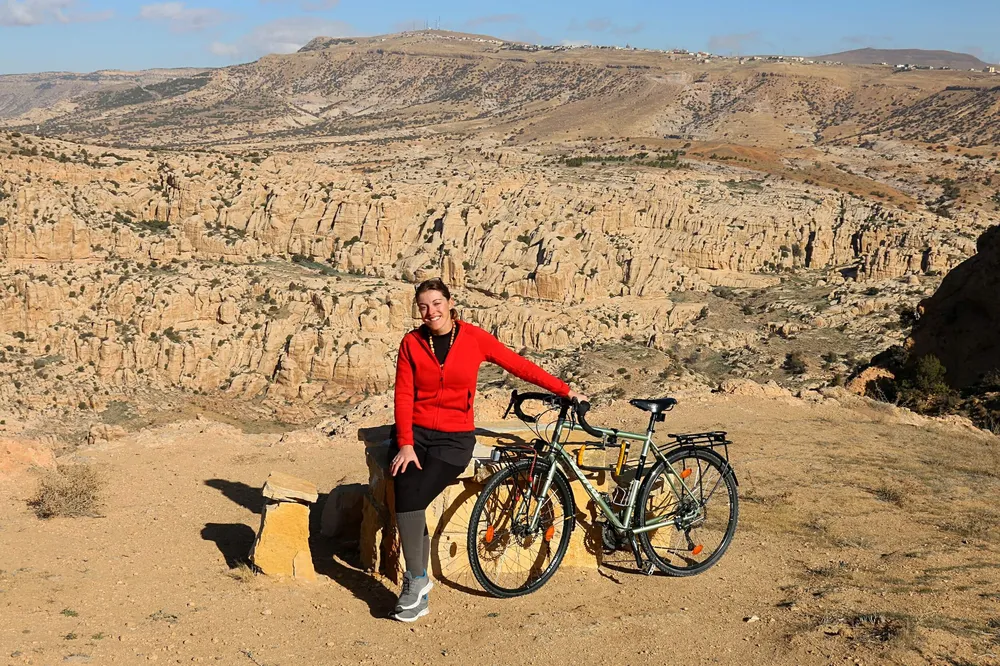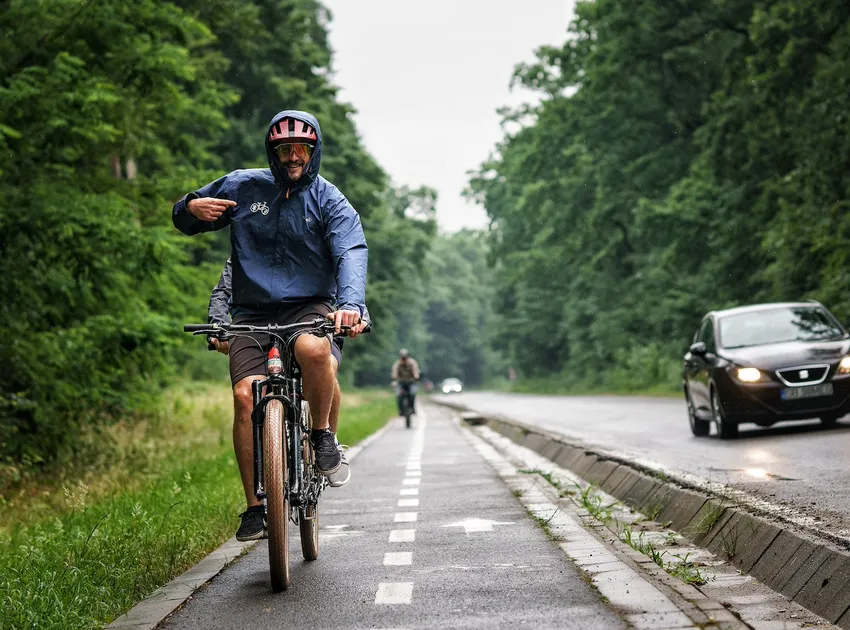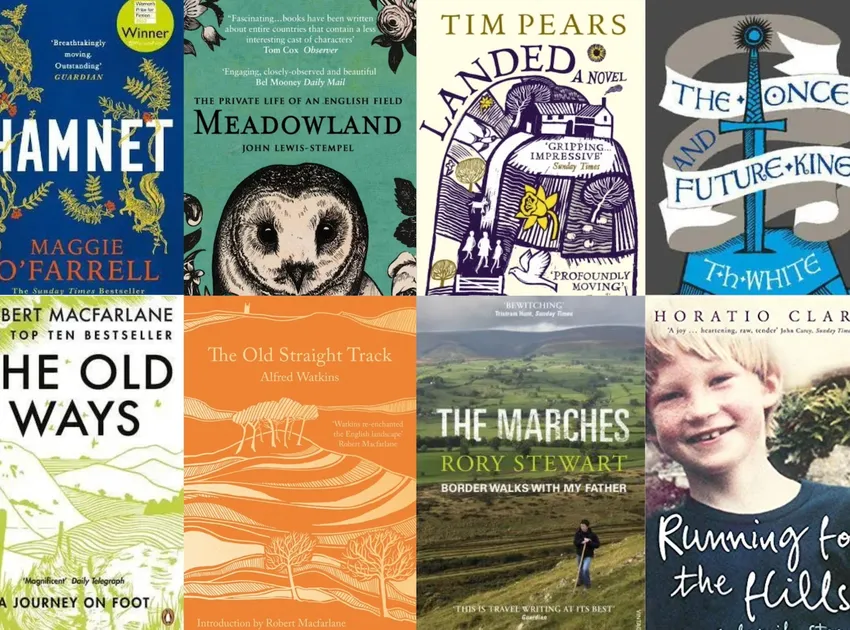The Slow Road to Tehran: An Interview with Rebecca Lowe (Part 2)
Continued from part one.
In 2015, Rebecca Lowe set off on her trusty bike Maud on a solo travel mission to cycle from London to Iran, a journey she documented in her excellent book The Slow Road to Tehran.
In part one, we spoke to Rebecca about travelling solo as a woman, her motivations for the journey and why she chose to travel by bike. In part two, we discuss culture shocks and lessons Rebecca learned along the way.
Note: We are conscious of the ongoing situation in Iran and the Middle East at the time of publication (June 2025) and feel it's important you know that our interview with Rebecca is certainly not intended to be political commentary. Wherever there is conflict, no matter the circumstances, it's important to remember that everyday, innocent civilians are impacted and we hope this is what comes across in our interview with Rebecca.
Did you face any major cultural challenges travelling through the Middle East?
Entering a new country with new rules, languages, beliefs etc is always a little unsettling. But there was never any big ‘bam, I’m in the Middle East’ kind of culture shock. I hit my first majority Muslim countries when I was still in Europe, in the Balkans, and while Turkey arguably marked my official entry to the ‘Middle East’, Western Turkey still felt very European. Crossing the Bosphorus to the ‘Islamic’ side of Istanbul didn’t feel like a big shift either. Even entering Lebanon, my first Arab country, wasn’t too much of a jolt as it’s a fairly westernised country with a big Christian population. So it was a slow immersion.
The chaos of Cairo is always a bit of a shock. I got stuck there for around five weeks while waiting for my Iranian visa. It’s a suffocating place, partly due to the dense crowds and pollution, but also because of the military presence and heavy political repression. The moment when I left the frenzy of Egypt and entered the totally empty desert of Sudan was truly joyful. I suddenly found I could breathe again.
In Iran, there’s an etiquette called ‘taarof’ which means you should say no to any offer three times before you accept it. I didn’t know this until the day before I left the country, and suddenly felt horrified at the thought of all the invitations I’d accepted which may not actually have been sincere! But on the plus side, it meant I got to eat about a dozen kebabs a day – so as terrible faux pas go, it’s one I can probably live with.
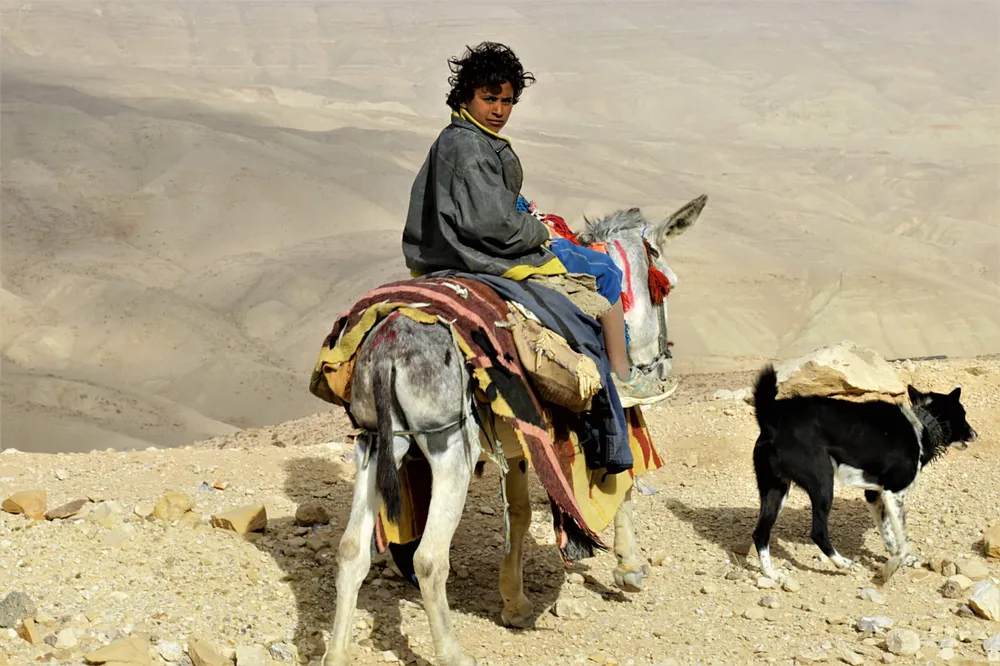
Did you have a favourite place on your journey?
It’s a difficult question, but I think the two countries I found the most fascinating were Sudan and Iran.
In the Sahara in Sudan, I usually slept on angareebs (string beds) in people’s courtyards. The generators would go out at night and it was truly pitch black. I’d lie there for hours staring at layers and layers of stars, literally looking back in time to galaxies millions of light-years away. It was extraordinary.
Sudan also has such a fascinating history. I was travelling through an area called Nubia, which was once an incredibly powerful, sophisticated kingdom. In 700BC it even rose up and conquered Ancient Egypt, where five black pharaohs ruled for the next hundred years. However, their story only started to emerge very recently due to racist interpretations of history. There are incredible pyramids and archaeological sites all through Sudan but, because of the political situation, they’ve never been preserved or managed properly. In one place called Meroë there are more pyramids than in the whole of Egypt, which you can wander around freely. Hopefully, when Sudan is finally back on its feet again, these sites will receive the protection they deserve.
In Iran, I experienced the most amazing hospitality. I was quite nervous when I entered, as I was travelling on a dodgy visa, and on my first day of cycling I lay down in a bush for a snooze without my headscarf. The next thing I knew, two green and white police cars with flashing lights turned up, who I immediately recognised as the morality police. They started barking ‘hijab, hijab’ at me and I thought, ‘Oh no, this is a disaster: I’m going to be deported.’ But then one of them handed me a phone and there was a man speaking English at the other end who asked who I was, before saying that I must go to his house for a koobideh kebab. I followed the police car to a bungalow, where a very kind family gave me an air conditioned room and tons of food. I found the incident fascinating because it showed the clash between the brutality of the Islamist regime on the one hand, and the incredible hospitality of the Iranian people on the other. And in my experience, it was the hospitality that inevitably won out every time.
When we see negative news about Iran and Sudan, what do you wish everyone knew about the people who live there?
That there’s a strong disconnect between the political establishment of these countries and the people themselves, and that the people are often the biggest victims of the establishment.
Sudan is facing the biggest humanitarian crisis in the world, and there are brilliant, bold, courageous people caught in the crossfire. Likewise, the situation in Gaza is truly unbearable. We often dismiss these things as something happening ‘over there’, and believe that these places have somehow brought all this misfortune on themselves, but the situation is more complex than that. Colonial history in the Middle East runs deep, and we must take our share of accountability for the heartbreaking and horrific conflicts we are seeing across the region today.
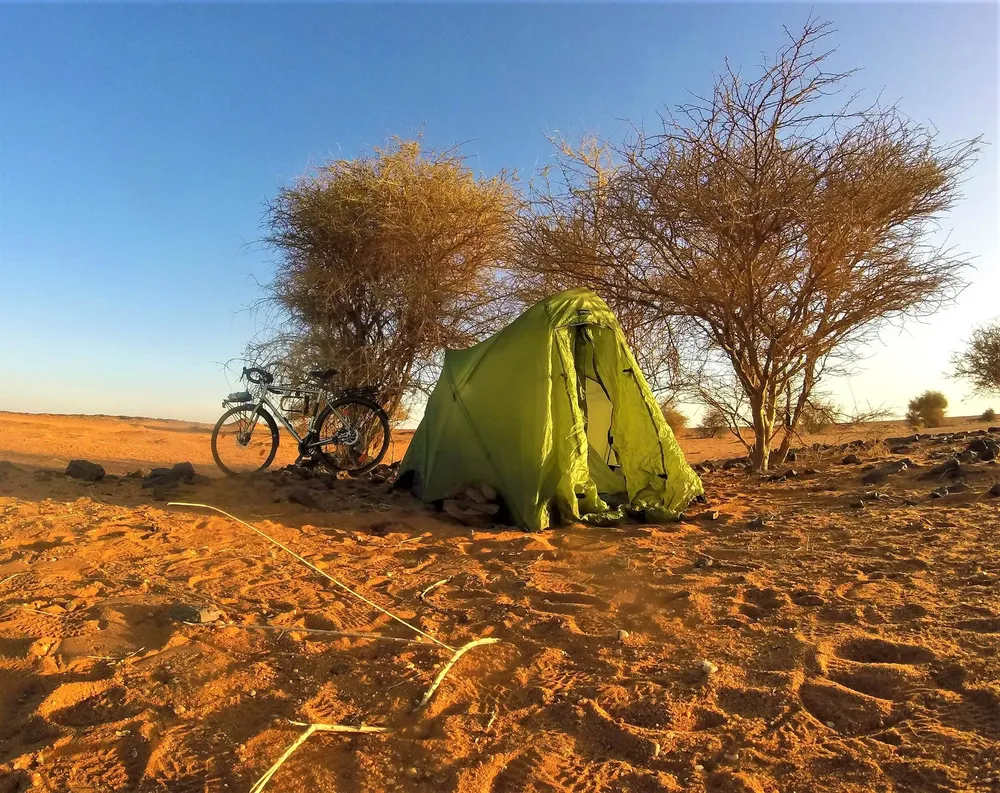
Do you stay in touch with people you met along the way and how did they feel about you writing the book?
I’m in touch with a lot of people from different areas. In terms of the book, the common thread I found was how keen people were for their stories to be shared. Sometimes they felt cut off or isolated from the world, so this was a way to get people talking about their situations. People were also very curious about the West and desperate for information, so it worked both ways.
Looking back, is there anything you wish you’d known before you began the trip, or do you have any advice for someone looking to do something similar?
I wish I’d known how to ride a bike properly!
It also would have been helpful knowing that I was going to write a book before I left. I ended up with a huge wealth of fairly scattergun material, and pulling it all together to form a cohesive narrative thread turned out to be incredibly difficult.
I would also say, don’t take inner tubes; take solid tires. Kona gave me a fantastic bike (Maud) with great tires that got me all the way to Beirut. But I then had to change them for flimsy-looking ‘puncture-proof’ tires – which did prove to be puncture-proof… for a full seven minutes. From there, I think I got a puncture pretty much every seven minutes until I reached Tehran.
Also, don’t take a ukelele. Many people might see this as obvious, but sadly I wasn’t one of them. I had this vision of myself as a kind of latter-day Laurie Lee character, strumming wistful folk tunes in bucolic meadows while the local wildlife and farmers gathered around to listen. In reality, I didn't play it once, and my partner Patrick ended up taking it home with him after he visited me in Montenegro. It remains the kindest thing he’s ever done in our relationship.
Have you kept Maud as a memento?
Maud is a trooper. She’s a great big clunker of a tour bike, so not one for whizzing around locally, but she’s lovely to ride. She’s in far better shape than me and ageing very well. I’m very grateful to Kona for sending her to me, and I didn’t have any issues with her on the trip (apart from a self-inflicted wound when I crashed her in Bulgaria).
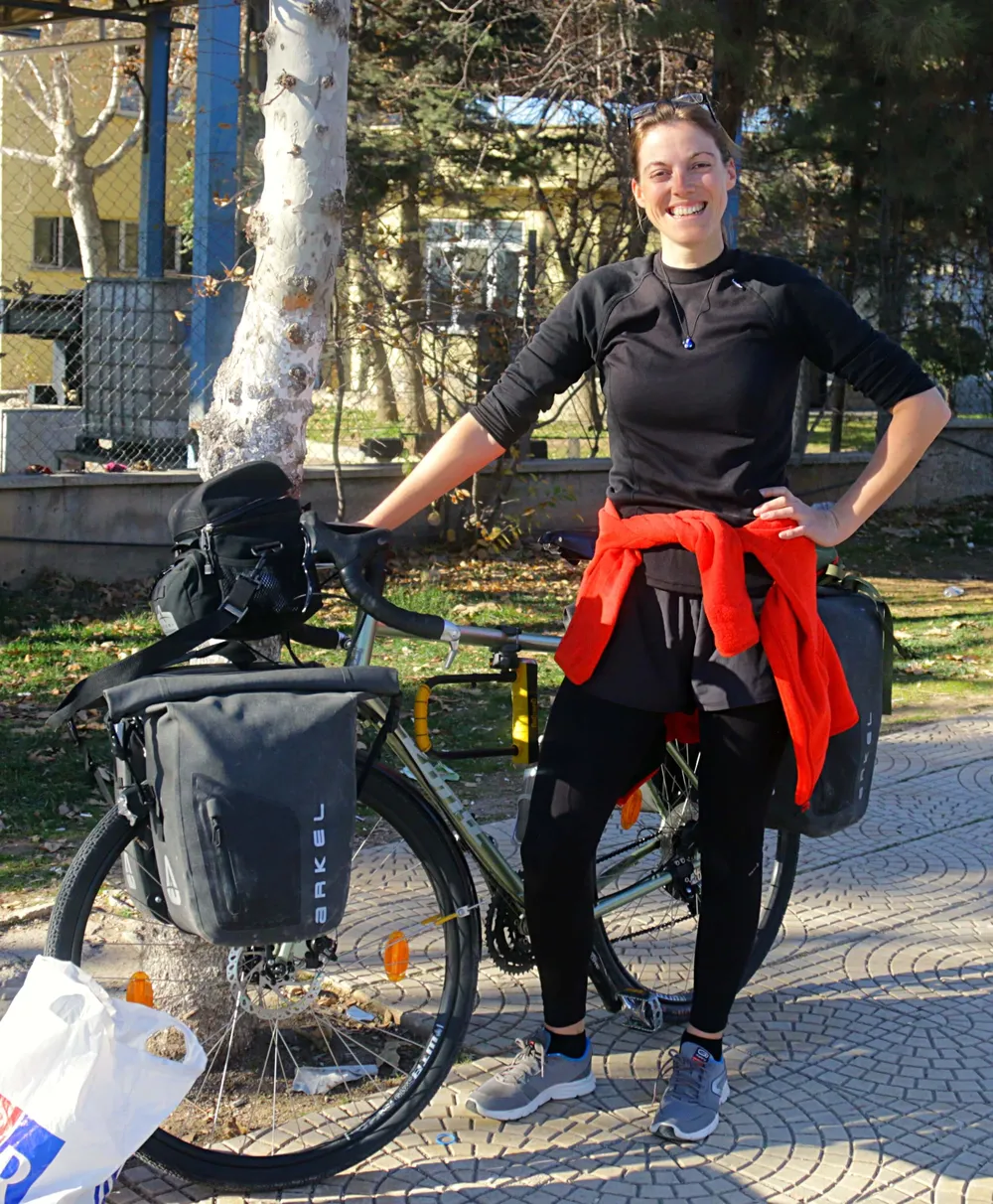
How will you feel if your daughters want to do a similar adventure one day?
Hmm. I’d probably be tempted to hide their passports and say they’re never leaving the house, but I fear that might be seen as hypocritical. There will always be a motherly instinct where I want to keep them in the nest and protect them, but I know I’ll have to fight those instincts and remember how wonderful and welcoming the world outside our comfort zone truly is.
As the poet Mary Oliver famously said, ‘Tell me, what is it you plan to do with your one wild and precious life?’ If my daughters don’t hanker for adventure, with a slightly wild and restless look in their eye, then it means I’ve done something wrong.
You can read all about Rebecca’s adventure in her wonderful book The Slow Road to Tehran or follow her current adventures on her Instagram account @reo_lowe.
If you’ve been inspired to embark on a solo travel adventure of your own, our scheduled journeys are a great place to start.
Find a Slow Cycling journey here.
